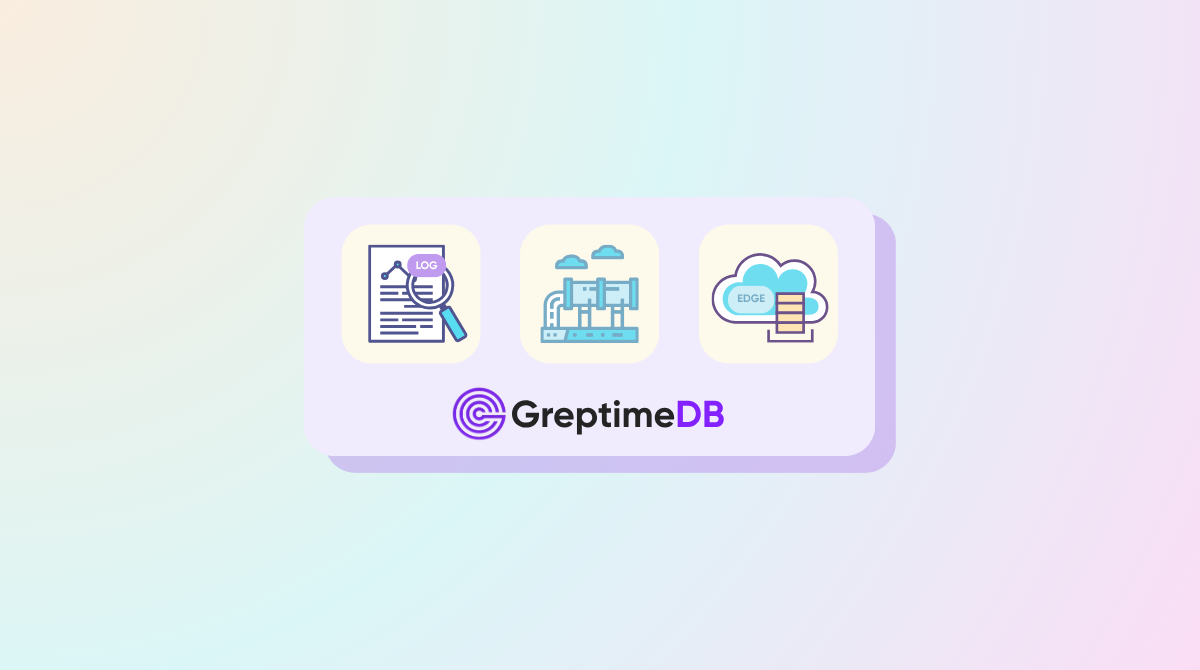
Ever tried finding "similar" information in your database? Traditional keyword searches often miss conceptually related content. GreptimeDB's vector search capability addresses this limitation, offering a powerful new way to discover meaningful connections in your time-series data.
Beyond Keywords: The Power of Semantic Search
Traditional search is like looking for an exact word in a book—you'll only find exact matches. Vector search works differently:
Transforms data into numerical "fingerprints"capturing meaning, not just text- Enables finding content with similar meaning but different phrasing
- Supports multimodal searches across text, images, and other data types
"We needed to find logs with similar error patterns, not just identical text," explains a DevOps engineer. "Vector search in GreptimeDB let us group related issues together, even when the exact wording differed."
How Vector Search Works in GreptimeDB
GreptimeDB integrates the powerful VSAG vector search library, bringing semantic search capabilities to time-series data:
Step 1: Embedding Your Data
First, text or other data is converted to vector embeddings using models like sentence-transformers:
model = SentenceTransformer('flax-sentence-embeddings/all_datasets_v3_mpnet-base')
descriptions = [row['description'] for row in data]
all_embeddings = model.encode(descriptions)These embeddings capture the semantic essence of your data as numerical vectors.
Step 2: Storing Vectors in GreptimeDB
Creating a table with vector support is straightforward:
CREATE TABLE IF NOT EXISTS news_articles (
title STRING FULLTEXT,
description STRING FULLTEXT,
genre STRING,
embedding VECTOR(768),
ts timestamp default current_timestamp(),
PRIMARY KEY(title),
TIME INDEX(ts)
);The VECTOR(768) type specifically supports the dimensional space needed for embeddings.
Step 3: Performing Similarity Searches
Once your data is embedded and stored, similarity searches become simple:
search_query = 'China Sports'
search_embedding = embedding_s(model.encode(search_query))
query_statement = sa.text('''
SELECT title, description, genre, vec_dot_product(embedding, :embedding) AS score
FROM news_articles
ORDER BY score DESC
LIMIT 10
''')Real-World Applications of Vector Search
Vector search in GreptimeDB unlocks numerous practical applications:
Log analysis: Finding all error messages with similar patternsAnomaly detection: Identifying unusual metrics with similar characteristicsContent recommendation: Suggesting related dashboards or alertsSemantic grouping: Clustering related events for root cause analysis
"The combination of time-series data with vector search capabilities gives us a new dimension for analysis," notes a data scientist. "We're finding patterns we simply couldn't see before."
Getting Started with Vector Search
Vector search might sound complex, but GreptimeDB makes implementation straightforward:
- Choose an embedding model appropriate for your data
- Create tables with vector field types
- Develop a preprocessing pipeline to generate embeddings
- Start querying based on similarity rather than exact matches
Ready to explore the power of vector search in your time-series data? Visit GreptimeDB's documentation to learn more, or try it instantly with GreptimeCloud.
About Greptime
GreptimeDB is an open-source, cloud-native database purpose-built for real-time observability. Built in Rust and optimized for cloud-native environments, it provides unified storage and processing for metrics, logs, and traces—delivering sub-second insights from edge to cloud —at any scale.
GreptimeDB OSS – The open-sourced database for small to medium-scale observability and IoT use cases, ideal for personal projects or dev/test environments.
GreptimeDB Enterprise – A robust observability database with enhanced security, high availability, and enterprise-grade support.
GreptimeCloud – A fully managed, serverless DBaaS with elastic scaling and zero operational overhead. Built for teams that need speed, flexibility, and ease of use out of the box.
🚀 We’re open to contributors—get started with issues labeled good first issue and connect with our community.
💬 Slack | 🐦 Twitter | 💼 LinkedIn
